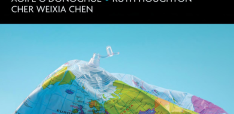Prabowo-Wang May 16 Meeting: 75 Years of China-Indonesia Relations and the Complexities Ahead

Muhammad Zulfikar Rakhmat and Yeta Purnama explore the political and strategic risks that come with China-Indonesia relations.
On May 16, Indonesian President Prabowo Subianto met with China’s Ambassador to Indonesia, Wang Lutong, at Merdeka Palace in Jakarta. This meeting was framed as a milestone in the context of the 75th anniversary of diplomatic relations between Indonesia and China. While the encounter was outwardly cordial, it also provided important context for understanding how the two nations are navigating their complex and evolving partnership amid shifting global dynamics.
Public statements following the meeting painted a picture of a positive, forward-looking discussion, with Ambassador Wang highlighting the enduring nature of bilateral ties. According to his comments, several key areas of cooperation were emphasized, including investment, food security, energy, industrial downstreaming, education, and cultural exchange. These sectors are indeed crucial to Indonesia’s national development agenda, but it remains to be seen how these broad aspirations will translate into tangible outcomes.
The continuity of policy between President Prabowo and his predecessor, Joko Widodo, was another key theme. Under Widodo, China became an essential partner, particularly in terms of infrastructure development and foreign investment. Prabowo’s administration appears to be building on this foundation, underscoring a strategic continuity in Indonesia’s approach to China. However, this reliance on China as a key economic partner raises significant questions about the sustainability of such dependencies. Many argue that the alignment of China’s interests with Indonesia’s long-term development goals is not always guaranteed.
One aspect that stood out in the meeting was the emphasis on the personal rapport between President Prabowo and Chinese President Xi Jinping. While diplomatic ties between leaders are often central to international relations, this focus could be seen as an indication that Indonesia is increasingly entangled in the web of China’s statecraft. Regular communications, including personal letters and meetings that took place in 2024, suggest that both sides view this relationship as more than just transactional. Yet, the extent to which this personalized approach may shape policy choices remains unclear. For a country like Indonesia, whose foreign policy traditionally emphasizes autonomy, such personal ties could open doors while, at the same time, creating new political risks.
The meeting also did not shy away from acknowledging the growing Chinese footprint in Indonesia, particularly in the realms of nickel processing, energy, and infrastructure development. While these investments certainly contribute to Indonesia’s development, they have been met with increasing scrutiny. Concerns over labor practices, environmental sustainability, and the potential for excessive dependence on Chinese capital are valid. These issues are unlikely to disappear in the coming years and will continue to require careful negotiation. The real challenge for Indonesia will be finding the balance between benefiting from Chinese investments and safeguarding its broader economic and political independence.
Perhaps more pressing are the areas of divergence between the two countries, especially with respect to regional security issues. The South China Sea remains a sensitive topic, even if Indonesia is not a direct claimant in the territorial disputes. Indonesian authorities have expressed concerns about Chinese maritime activities near the Natuna Islands, located within Indonesia’s exclusive economic zone. While these tensions have been managed diplomatically to date, they are far from resolved. The fact that these issues were not addressed in the Prabowo-Wang meeting suggests that such topics remain delicate and unlikely to be openly confronted in public diplomacy.
The people-to-people exchange between the two countries, which was highlighted as a priority in the meeting, should also be approached with caution. While educational exchanges, cultural programs, and increased tourism can help foster goodwill and understanding, they also come with risks. The transparency of these exchanges and the potential for them to be leveraged for soft power by China is an issue that will require ongoing vigilance. Diplomatic goodwill must not come at the cost of compromising Indonesia’s sovereignty or national interests.
From a broader foreign policy perspective, Indonesia’s engagement with China must be viewed in the context of its longstanding commitment to non-alignment and a "free and active" diplomacy. While these principles have allowed Indonesia to maintain flexibility in its foreign relations, the growing prominence of China in the region means that the country’s foreign policy will have to adapt. Deepening ties with China does not signal a definitive shift toward Beijing, but rather a pragmatic acknowledgment of China’s geopolitical and economic influence. That said, Indonesia must ensure it does not find itself overly reliant on one partner at the expense of diversifying its strategic options.
Looking ahead, the planned visit of Chinese Premier Li Qiang to Indonesia later this month could offer further insight into the direction of bilateral relations. As both countries approach the future of their 75-year-old diplomatic relationship, the key challenge for Indonesia will be to ensure that its growing ties with China do not come at the expense of its broader strategic interests. The Prabowo-Wang meeting serves as a reminder that, for all the promises of cooperation, Indonesia will need to tread carefully as it navigates this increasingly complicated relationship.
In the end, Indonesia’s success in its dealings with China will hinge not just on its ability to reap the economic benefits of such cooperation, but also on its capacity to manage the political and strategic risks that inevitably come with it.
Muhammad Zulfikar Rakhmat is the Director of the China-Indonesia and Indonesia-MENA Desks at the Center of Economic and Law Studies (CELIOS) in Jakarta.
Yeta Purnama is a Researcher at the China-Indonesia Desk at CELIOS.
Photo by Pixabay


